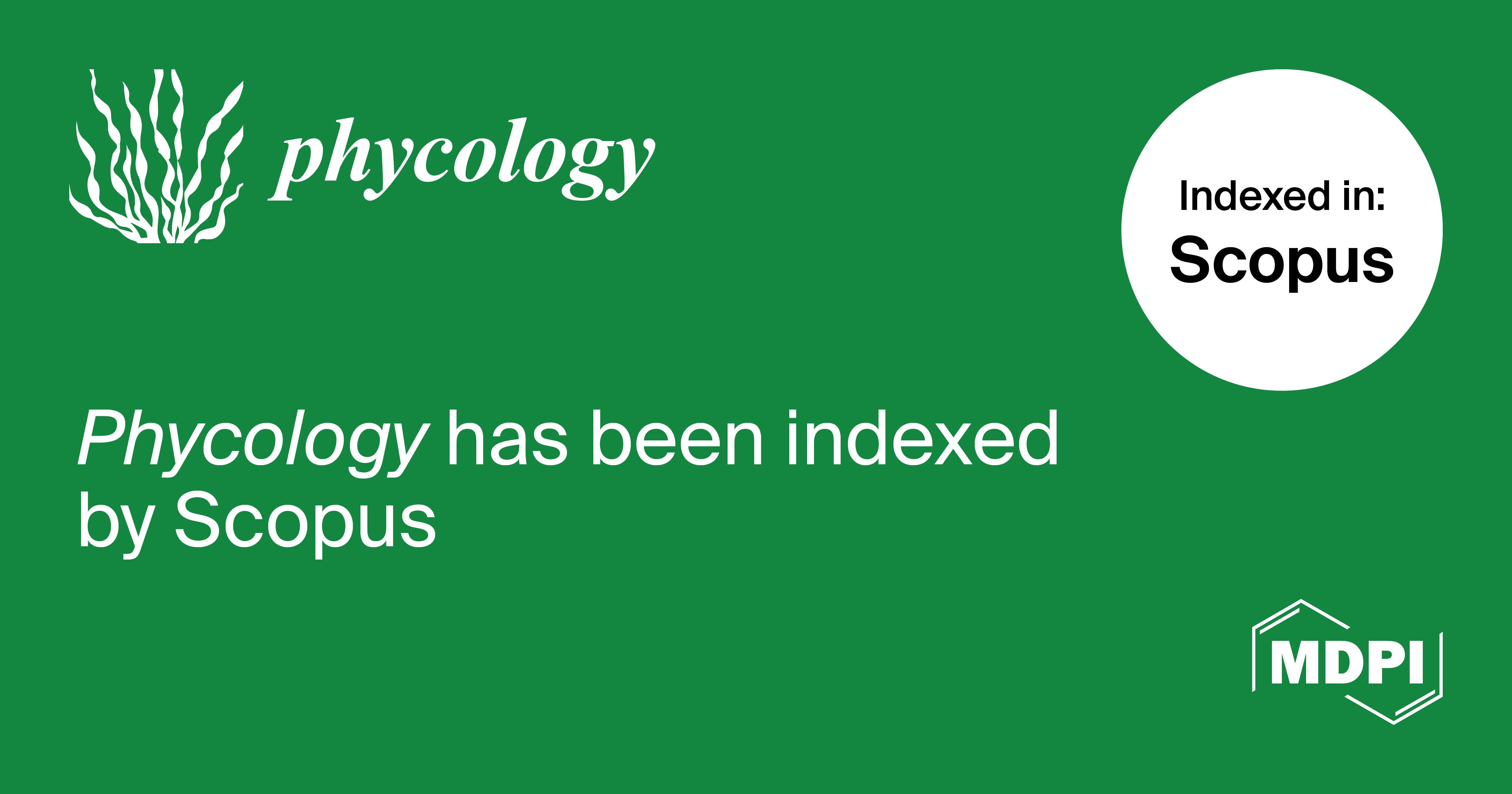
Phycology Accepted for Coverage in Scopus
We are pleased to announce that Phycology (ISSN: 2673-9410) has been accepted for coverage in the Scopus indexing database in April 2024. We would like to thank all the authors, reviewers, and editors who have contributed to this journal and helped us to accomplish this.
Phycology is dedicated to the dissemination of rigorously peer-reviewed publications on the subject of microalgae and macroalgae, including their origin, evolution, ecology, structure, biochemistry, molecular biology, biotechnology, and the many diverse applications that involve monitoring, cultivation, harvesting, processing, and compound extraction. The journal aims to provide high-quality research contributions in a wide range of phycology areas that have potential to advance our knowledge while addressing local and global areas of significance. As an open access journal, Phycology has high visibility and is committed to rapid publication.
To make the most of this opportunity, we invite you to contribute your research to Phycology. If you have a paper concerning any topic within the scope of the journal, please submit it via the journal’s website.
Phycology Editorial Office